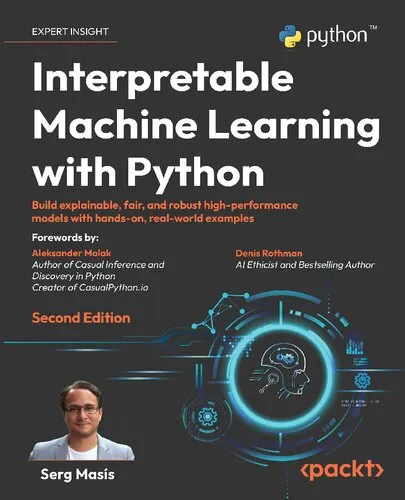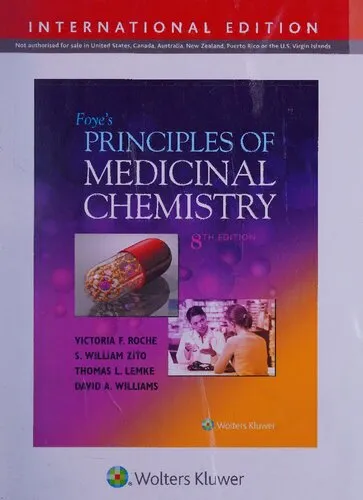Optimal Flow Control in Manufacturing Systems: Production Planning and Scheduling
4.4
Reviews from our users

You Can Ask your questions from this book's AI after Login
Each download or ask from book AI costs 2 points. To earn more free points, please visit the Points Guide Page and complete some valuable actions.Related Refrences:
Introduction to "Optimal Flow Control in Manufacturing Systems: Production Planning and Scheduling"
"Optimal Flow Control in Manufacturing Systems: Production Planning and Scheduling" is an authoritative resource for understanding the principles, methodologies, and applications behind efficient production planning and scheduling in modern manufacturing systems. Designed for both practitioners and researchers, this book combines theoretical foundations with practical approaches to optimize flow control in industrial settings. By addressing real-world challenges in manufacturing, this work provides a roadmap for improving productivity, resource allocation, and system performance.
Written by esteemed authors Oded Maimon, Eugene Khmelnitsky, and Konstantin Kogan, the book offers a comprehensive insight into the complexities of manufacturing processes. It focuses on achieving balance and efficiency in production systems through effective decision-making, mathematical modeling, and optimization techniques.
Detailed Summary of the Book
This book presents an innovative approach to addressing flow control in manufacturing systems by exploring modern tools for production planning and scheduling. It systematically builds a framework for understanding how materials, information, and resources interact in production environments and how these interactions can be optimized for maximum efficiency.
Divided into thematic chapters, the book begins with an introduction to the underlying principles of manufacturing systems and the importance of strategic decision-making in fostering seamless operations. From here, the text delves into mathematical models for describing the dynamics of manufacturing processes. It further discusses advanced optimization techniques like linear programming, dynamic programming, and queuing theory as they pertain to production flows.
A significant aspect of the book is its focus on constraints and real-world limitations, such as machine availability, workforce schedules, and resource constraints. By analyzing these factors holistically, the book equips readers with tools to handle diverse production scenarios by aligning theoretical models with practical applications. Moreover, the inclusion of case studies and examples enhances the relevance of the material, demonstrating how concepts can be applied effectively in various manufacturing settings.
Key Takeaways
Key lessons from the book include:
- A clear understanding of the fundamental principles of manufacturing systems and flow control.
- Insights into mathematical modeling and decision-making strategies for production optimization.
- Techniques for resource allocation, capacity planning, and equipment utilization.
- Practical applications of optimization in real-world manufacturing environments.
- Detailed examples and case studies highlighting the successful implementation of production planning strategies.
Famous Quotes from the Book
The book is filled with insightful statements. Here are some notable excerpts:
"Optimization in manufacturing is not about perfection but about efficiency in the face of constraints."
"The key to productive systems lies in understanding the dynamic interactions of resources, processes, and time."
"In manufacturing, every decision reflects a balance between cost, time, and quality."
Why This Book Matters
In today's highly competitive manufacturing landscape, achieving operational efficiency is of utmost importance. This book is a crucial guide for professionals seeking to understand and implement advanced optimization techniques to achieve this goal.
What sets the book apart is its ability to bridge the gap between theory and practice. While many texts focus solely on theoretical constructs, "Optimal Flow Control in Manufacturing Systems" provides practical solutions adapted for real-world conditions, ensuring its applicability across various industries. From small manufacturing setups to large-scale production facilities, the principles laid out in this book go beyond academic exercises to deliver tangible results.
Moreover, the integration of advanced decision-making models with everyday operational challenges ensures that readers not only learn about optimization but can also utilize these methodologies to make impactful, data-driven choices. Whether you are a researcher exploring the complexities of industrial processes or a production planner striving to improve flows within your organization, this book serves as an indispensable resource.
Free Direct Download
You Can Download this book after Login
Accessing books through legal platforms and public libraries not only supports the rights of authors and publishers but also contributes to the sustainability of reading culture. Before downloading, please take a moment to consider these options.
Find this book on other platforms:
WorldCat helps you find books in libraries worldwide.
See ratings, reviews, and discussions on Goodreads.
Find and buy rare or used books on AbeBooks.
1161
بازدید4.4
امتیاز0
نظر98%
رضایتReviews:
4.4
Based on 0 users review
Questions & Answers
Ask questions about this book or help others by answering
No questions yet. Be the first to ask!





![The Ultimate iOS Interview Playbook: Conquer Swift, frameworks, design patterns, and app architecture [Team-IRA]](https://s3.refhub.ir/images/thumb/The_Ultimate_iOS_Interview_Playbook__Conquer__29925.webp)







